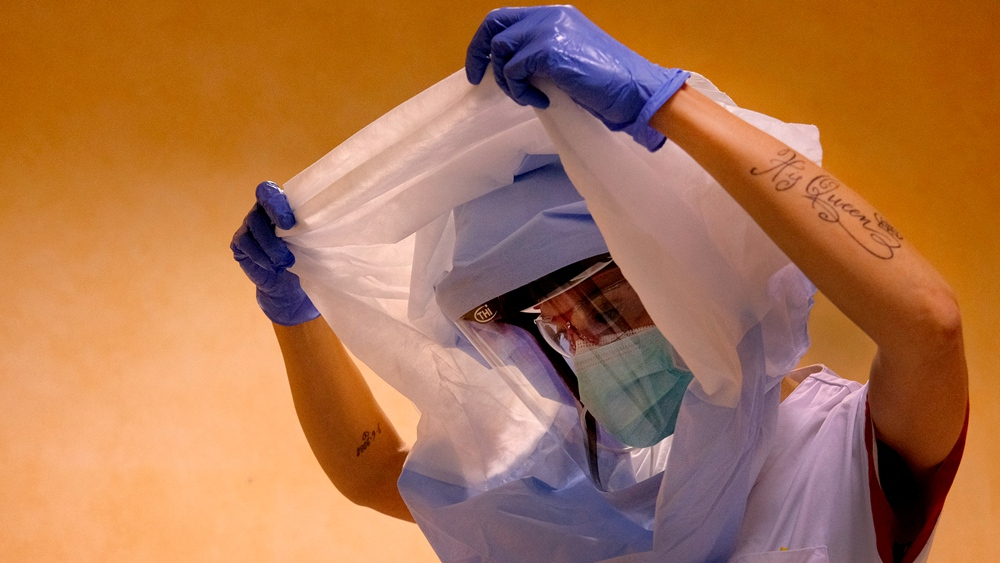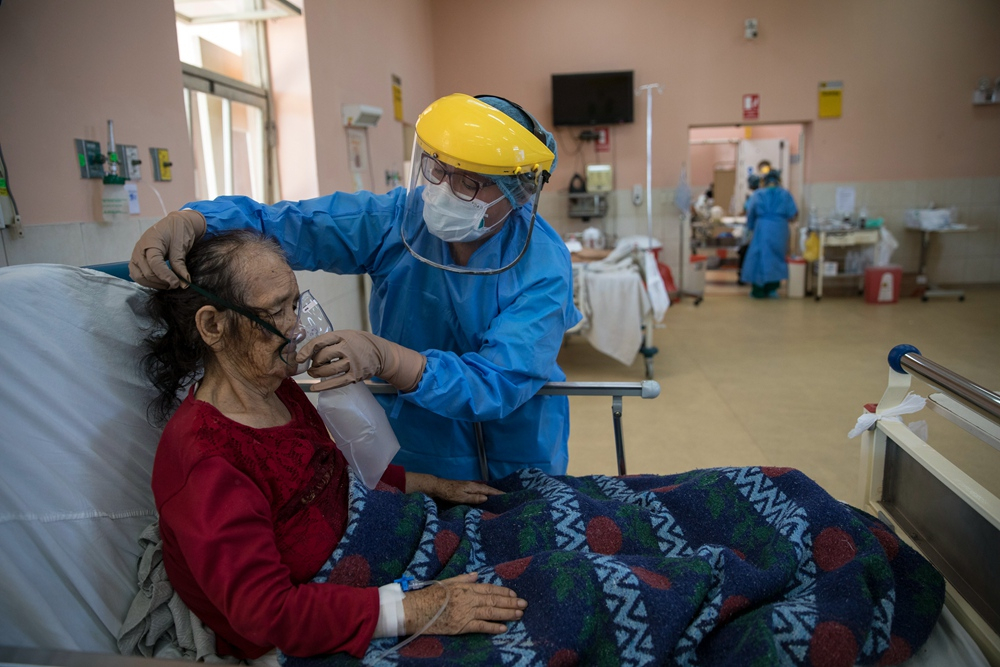Health ministers from the Group of 20 (G20) major economies discussed weaknesses in health systems that made the world vulnerable to the coronavirus outbreak and other pandemics, a statement by the G20 Saudi Presidency said after a virtual meeting on Sunday.
"Health Ministers recognized that the COVID-19 pandemic has highlighted systemic weaknesses in health systems," the statement said. "It also has shown vulnerabilities in the global community's ability to prevent and respond to pandemic threats."
The statement said the ministers adopted preventative measures to contain the pandemic, but did not elaborate.

A nurse dresses up to enter the intensive care unit of the COVID-19 department of the Policlinic of Tor Vergata in Rome, Italy, April 17, 2020. /AP
A nurse dresses up to enter the intensive care unit of the COVID-19 department of the Policlinic of Tor Vergata in Rome, Italy, April 17, 2020. /AP
The ministers also reviewed the importance of utilizing digital solutions in current and future pandemics.
They stressed that people's health and wellbeing are at the heart of all decisions taken to protect lives and alleviate the socio-economic impacts resulting from the virus.
G20 health ministers will take further actions that may be required to contain the pandemic and will reconvene as necessary, the statement added.
Leaders from Spain, Singapore, Jordan and Switzerland were invited to attend Sunday's meeting as well as international and regional organizations including the World Health Organization (WHO) and the World Bank.
Read more:
Xi Jinping calls for tariff reduction within G20 amid potential virus-driven global recession
China calls for enhanced G20 cooperation amid COVID-19 outbreak
Ma Xiaowei, director of China's National Health Commission, called on all parties to continue to support the WHO in playing a leading and coordinating role in fighting the pandemic. He also called for joint efforts to help countries with weak health systems to enhance capacity.
WHO chief: We share the same destiny
Speaking during the meeting from Geneva, WHO Director-General Tedros Adhanom Ghebreyesus said lifting lockdown restrictions for COVID-19 is not the end of the epidemic, but the beginning of the next phase.

A nurse places an oxygen mask on a patient inside the intensive care unit for people infected with COVID-19, at the 2 de Mayo Hospital, in Lima, Peru, April 17, 2020. /AP
A nurse places an oxygen mask on a patient inside the intensive care unit for people infected with COVID-19, at the 2 de Mayo Hospital, in Lima, Peru, April 17, 2020. /AP
Tedros said it is vital in this next phase that countries educate, engage and empower their people to prevent and respond rapidly to any resurgence.
"We are encouraged that several G20 countries are now starting to plan how to ease social restrictions. It is critical that these measures are a phased process," he said.
Read more:
In The Spotlight: WHO chief Tedros, a champion of multilateralism
Chinese FM: Supporting WHO means safeguarding multilateralism
Tedros told the health ministers that the WHO is deeply concerned that the virus now appears to be gathering pace in countries that lack the capacity of many G20 countries to respond to it.
"Urgent support is needed, not only to support countries to respond to COVID-19, but to ensure other essential health services continue," he said.
Tedros also took the opportunity to thank Saudi Arabia for its support of the global fight against the virus. Saudi Arabia announced Thursday a 500-million-U.S. dollar donation to relevant international organizations to support global efforts in combating COVID-19.
"The COVID-19 pandemic has reminded us of a simple truth: We are one humanity. We share the same planet. We share the same hopes and dreams. We share the same destiny," the WHO chief said.
(With input from Xinhua, Reuters)